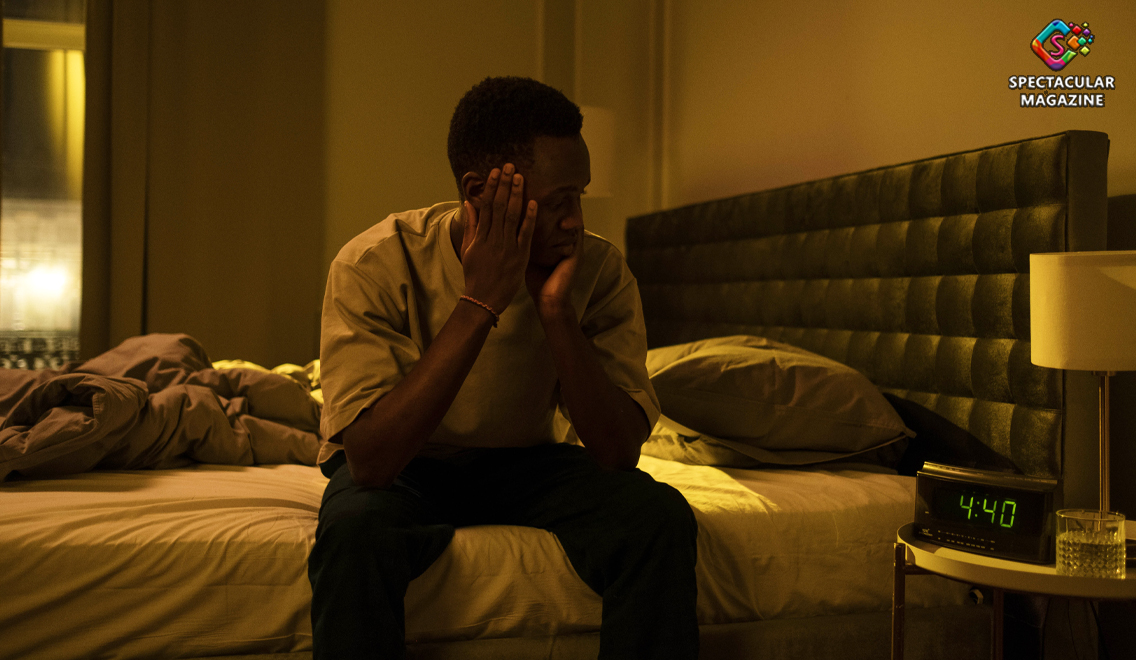Is Stress Keeping You Awake At Night?
Can’t get to sleep at night? There are so many things that can cause insomnia from an uncomfortable bed to poor diet and exercise. However, one of the most common things that stop people from getting to sleep is stress.
Stress is the body’s coping mechanism for dealing with fight or flight situations. A hormone called cortisol is released into the body that makes our muscles tenser and our minds more alert in preparation for fighting or running. In dangerous situations, stress can be very useful. Unfortunately, as our lives have become less dangerous over time, humans have evolved to get stressed over smaller everyday things such as getting to work on time or keeping on top of housework – situations where stress actually isn’t very useful at all.
The tension and alertness that we feel when stressed are particularly non-useful when we’re trying to sleep. Our body fails to produce sleep hormones and so we end up lying in bed awake.
The cycle between stress and sleep deprivation
Stress and lack of sleep can negatively affect each other creating a vicious cycle. When we haven’t had a good night’s sleep, we’re more likely to feel stressed the day after. This stress can then stop us from getting to sleep the following evening.
Breaking this cycle is important for your own health. Both chronic stress and constant lack of sleep can have a serious negative impact on blood pressure and the heart in the long run. You could be more at risk of heart disease, strokes, and hypertension. Links have also been found between chronic stress/sleep deprivation and a greater risk of weight gain, memory loss, and even cancer.
Some good ways to destress before bed
The best way to end the cycle of stress and sleep deprivation is to find a way of destressing yourself before bed. You may not always be able to control what happens during the day, but when it comes to the evening you should try to avoid stress triggers and focus on relaxing activities. Some destressing remedies are discussed below.
Watch a comedy

Laughter is a great remedy to stress. It helps to give us that release of energy our body is craving while also pumping the body with feel-good endorphins that flush out the cortisol.
Before going to bed, consider watching a comedy. You could try something classic that you’ve watched before and is guaranteed to make you laugh. Or you could try something new – for instance, you could try out some of the funniest female comedians or look into new recommended comedy series.
Comedy podcasts could be even better than comedy shows if your mission is to get a good night’s sleep. Staring at a screen directly before bed can sometimes stop people from falling asleep because the bright screen tricks people into thinking that it’s still daytime.
Listen to some music
Music is a great stress-buster. Listening to a song that we love can release endorphins that help to rid our body of cortisol. Unlike watching TV, listening to music also doesn’t require staring at a bright screen.
You could consider listening to a few songs in bed on your headphones. Be wary that some songs may be more likely to energize you such as fast EDM or heavy metal – slower music may be better if you’re trying to get to sleep, but it all depends on your musical preferences as to what will help you destress.
Read a book

Reading a book can be another calming activity for many people. Studies have shown that it can lower our heart rate and reduce muscle tension. If you haven’t already got a book on the go, consider picking one up to read in the evenings.
A paperback book is likely to be more effective at helping you to sleep than an e-reader with a bright screen. That said, many tablets and e-readers do have settings that can help them to emit less UV light at night, preventing the bright screen from making you feel more awake.
Meditate
Meditation is a popular form of stress relief. There’s more to it than closing your eyes and uttering ‘Ummm. Meditation is all about refocusing your thoughts away from negative triggers. By distancing yourself from the stress, you can gain more perspective on it – and realize that it may not be as serious as you’re making it out to be.
There are lots of guides to meditation online. It could be worth reading these and trying out some meditation techniques next time you’re stressed. The best thing about meditation is that you can do it practically anywhere (although a quiet environment can help to get in the zone).
Use calming scents
Certain scents like lavender and jasmine have psychologically soothing effects – studies have found that they reduce stress levels and help the production of sleep hormones. Consider introducing a few of these scents to your bedtime routine.
You could light a scented candle or use an oil diffuser in the evening to fill the air in your home with these scents and make you feel calmer. Alternatively, you could try washing your bedding in scented detergent, spraying your bed with scents, or even growing plants like lavender in your bedroom.
Drink herbal tea

Regular tea contains caffeine and should be avoided before bed. However, many herbal teas are caffeine-free and may include anxiety-reducing ingredients such as chamomile and passionflower, which can help you to destress.
Your local store may have some of these herbal teas on the shelves. Alternatively, you can shop for them online.
Take a bath
A hot bath at night could be another way of reducing your stress levels. The buoyancy of the water can help to relax tense muscles, while the heat can help to stimulate nerve endings and provide an endorphin rush that helps to rid our body of cortisol.
Bath bombs and bath oils may further help you to relax by exposing you to calming scents. You could even plan to listen to music, meditate or read a book (ideally an e-reader in a waterproof case) as you take your bath.
Declutter your bedroom
Is your bedroom a cluttered mess? This clutter could be contributing to your stress. It’s easier to relax and empty our brains of stressful thoughts when we’re in a peaceful and harmonious environment. By tackling some of the clutter in your bedroom, you may find that you’re able to relax a lot easier.
This could be a job to do at a weekend rather than just before bed. Focus on getting rid of all visible clutter – either by disposing of it or hiding it away. Make sure that there are no piles of clothes on the floor and that surfaces aren’t covered in items. You should also make sure that walls aren’t cluttered with photos and hanging objects.
Reduce stress in your everyday life
There may be times when you can eliminate stress at the source. There will always be stressful aspects to responsibilities such as parenthood, work, or organizing events. However, a lot of stress can be reduced by planning ahead and by discovering hacks to make tasks easier. For instance, by structuring your time well you can meet work deadlines early.
By reducing day-to-day stress, you can enjoy more stress-free evenings so that you don’t have to take time to destress. This in turn could help you to get to sleep more easily at night.


